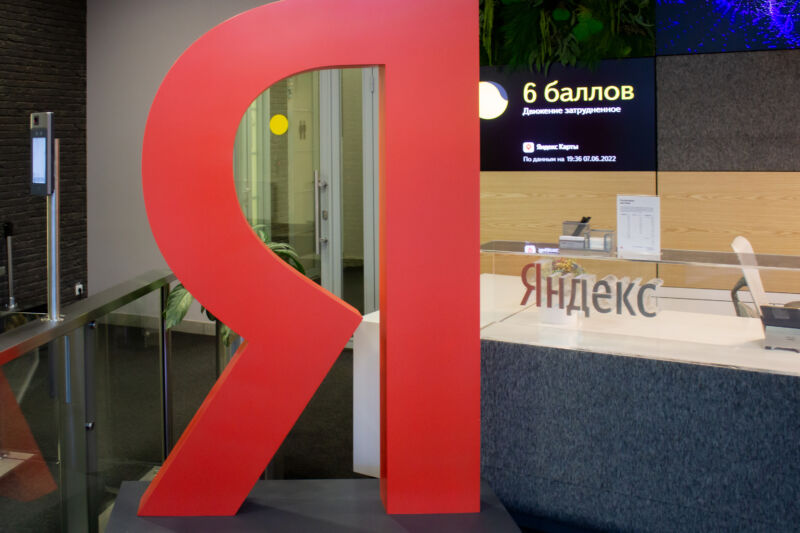-
chevron_right
Russia Piracy Takedowns Up By 100%, “Western Rightsholders to Blame”
news.movim.eu / TorrentFreak · Saturday, 20 January - 11:43 · 4 minutes
 Russian media outlets are reporting that the volume of pirated content on the internet doubled between 2022 and 2023. That’s not exactly true, or indeed true at all.
Russian media outlets are reporting that the volume of pirated content on the internet doubled between 2022 and 2023. That’s not exactly true, or indeed true at all.
The claims are based on data supplied by local telecoms watchdog Roscomnadzor. Speaking with Izvestia , the government agency said it blocked or deleted more than a million links to infringing content in 2023, more than double the amount blocked or deleted during the previous year.
While 1.1 million links is a notable uplift over the 485,000 reported in 2022, removal or blocking of links to allegedly-infringing content is just that. The infringing content itself, such as movies, TV shows, music, or indeed anything else, remains unaffected. New links to the same content may reappear and face deletion once again; that would increase the number of links being taken down, but in itself wouldn’t show that piracy volumes had increased.
Not that a small clarification makes the Russian piracy situation any easier to understand.
Western Companies Are to Blame
When good content is made available legally, conveniently, and at a fair price, studies have shown that legal sales tend to increase. When content isn’t made available at all in a particular market, whether that content is pirated by one person or 10 million, piracy rates immediately hit 100% for that product.
After Western entertainment companies withdrew from the Russian market following the 2022 invasion of Ukraine, any new content became impossible to consume legally in Russia. So, by default, any consumption would increase piracy rates for restricted products. When approached by Izvestia to comment on Roscomnadzor’s latest takedown stats, Yuri Zlobin, president of the Russian Shield anti-piracy group, blamed Western companies.
Zlobin says that, if Western copyright holders continue to treat Russian consumers poorly, piracy will continue to grow unhindered due to the lack of Western rightsholder enforcement in Russia. If the rightsholders fail to protect their own content, no one else will do it for them, he said.
“If Western brands do not want to fight piracy in a particular country, it means that they are actually legalizing piracy of their content,” Zlobin added.
Blame the West First, Try to Make Things Fit Later
While there’s a chance that Zlobin meant ‘effectively’ rather than ‘actually’ legalizing piracy, lack of enforcement in its own right doesn’t legalize piracy of anything and, to our knowledge, that applies everywhere. That said, enforcement is important; if done in a way that resonates or is simply effective, piracy rates can indeed reduce.
However, a fundamental problem appears to undermine claims that Western companies are to blame here.
If we accept that pulling out of the Russian market increases piracy of products that are no longer available legally, and accept Zlobin’s comments that Western companies’ failure to enforce their rights increases piracy, that leads to a couple of important questions.
If the volume of takedown notices has indeed doubled in a year, and Western companies are to blame for alleged increases in piracy due to the reasons outlined above, who sent all of those notices and for whose content?
If Western companies sent the notices, that would be enforcing their rights, contrary to the claim stating otherwise. If the rise in takedown notices was due to non-Western rightsholders protecting their content, how does that relate to Western content becoming unavailable to buy legally?
Western Companies Taught Russians to Pirate…
Zlobin is obviously right when he says the situation in Russia has deteriorated over the last couple of years. After many, many years of hard work, many consumers were indeed becoming accustomed to obtaining content legally. And yes, the withdrawal from the legal market they championed in Russia means that Western majors have lost those consumers.
These arguments are pretty solid, but the next part, not so much.
“[Western companies] have actually taught Russian clients to obtain the necessary content for free,” Zlobin said, according to Izvestia. “This is a kind of response to sanctions and incorrect attitude.”
So have other market players in Russia drawn similar conclusions?
Russian Pirates Like Local Content Too
In comments to Izvestia, legal online streaming platform ‘Premier’ appears to confirm that Western companies aren’t responsible for the rise in takedown notices. The company said that since there’s no official party able to submit applications to Roscomnadzor, enforcing their rights in Russia is difficult. However, Western content isn’t the only content in town.
“[P]irates not only consume Western content, but also projects of Russian online cinemas, so last year we strengthened the protection of our filmography,” the online cinema told the publication.
A representative from START, a local subscription streaming service that’s reportedly showing growth, says enforcement systems are being streamlined to tackle the piracy threat in Russia.
“To quickly search for unlicensed content, START has an anti-piracy department that searches for pirated links, protects content, and also conducts reconnaissance using open data,” the company told Izvestia. “We have created our own automated anti-piracy solution, thanks to which up to 80% of links are processed automatically.”
The Blame Game
This whole debate was launched on the basis that an increase in takedown notices means an actual increase in piracy. Yet, according to two of the people who commented, Western rightsholders aren’t enforcing their rights, including by not filing takedown notices.
More information would be useful, but this suggests that non-Western rightsholders not only managed to make up the deficit in takedown notices left behind by Western rightsholders, but then went on to send double that number in a year. Taking this scenario to its logical conclusion, the surge in notices likely relates to non-Western content , content that is both accessible in Russia and legally available to buy.
Maybe the real problems lie closer to home. Perhaps it’s always been that way, whoever gets the blame.
From: TF , for the latest news on copyright battles, piracy and more.
 The Pirate Bay and search engines are not a happy marriage recently. On the contrary.
The Pirate Bay and search engines are not a happy marriage recently. On the contrary.





